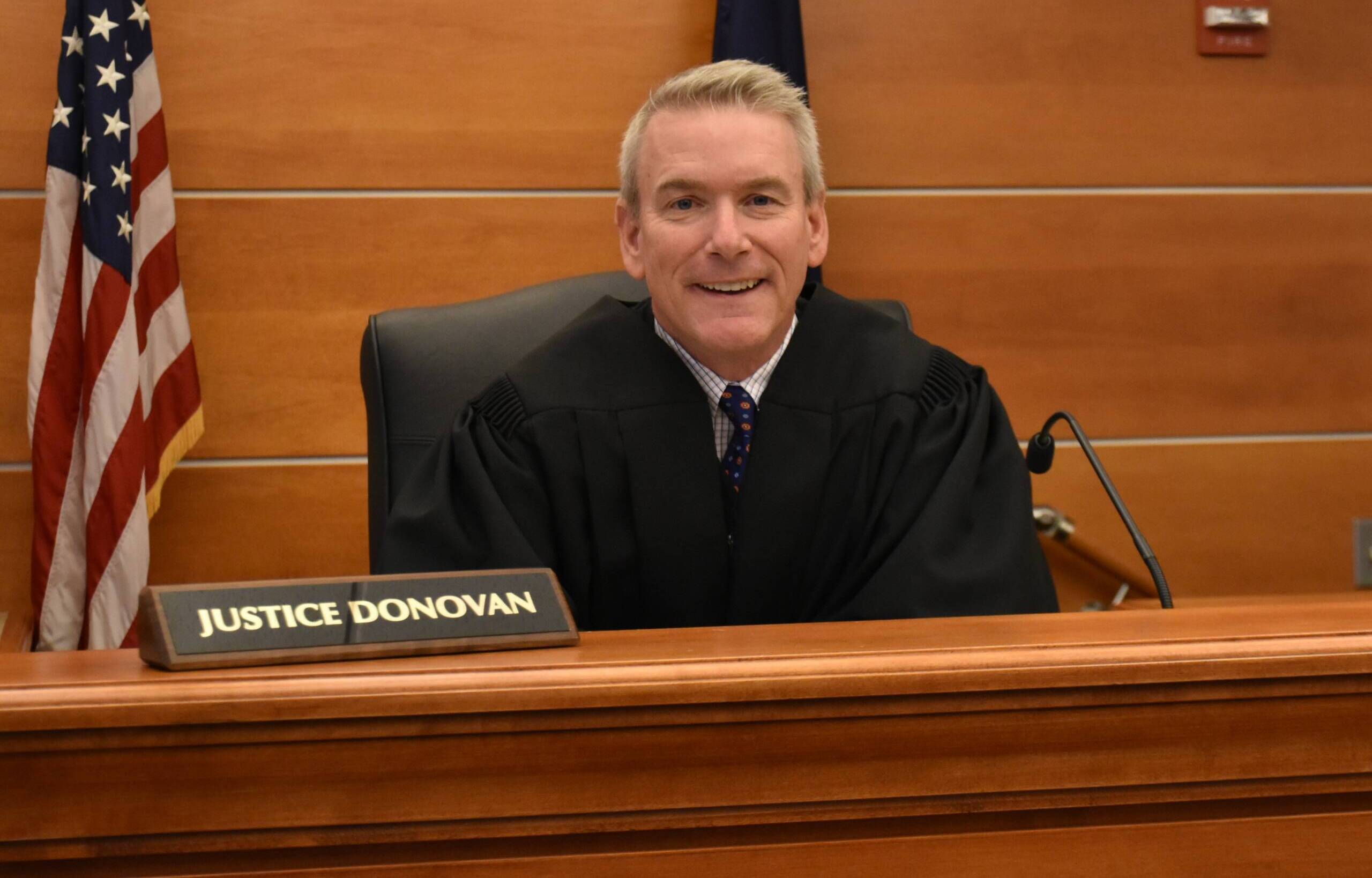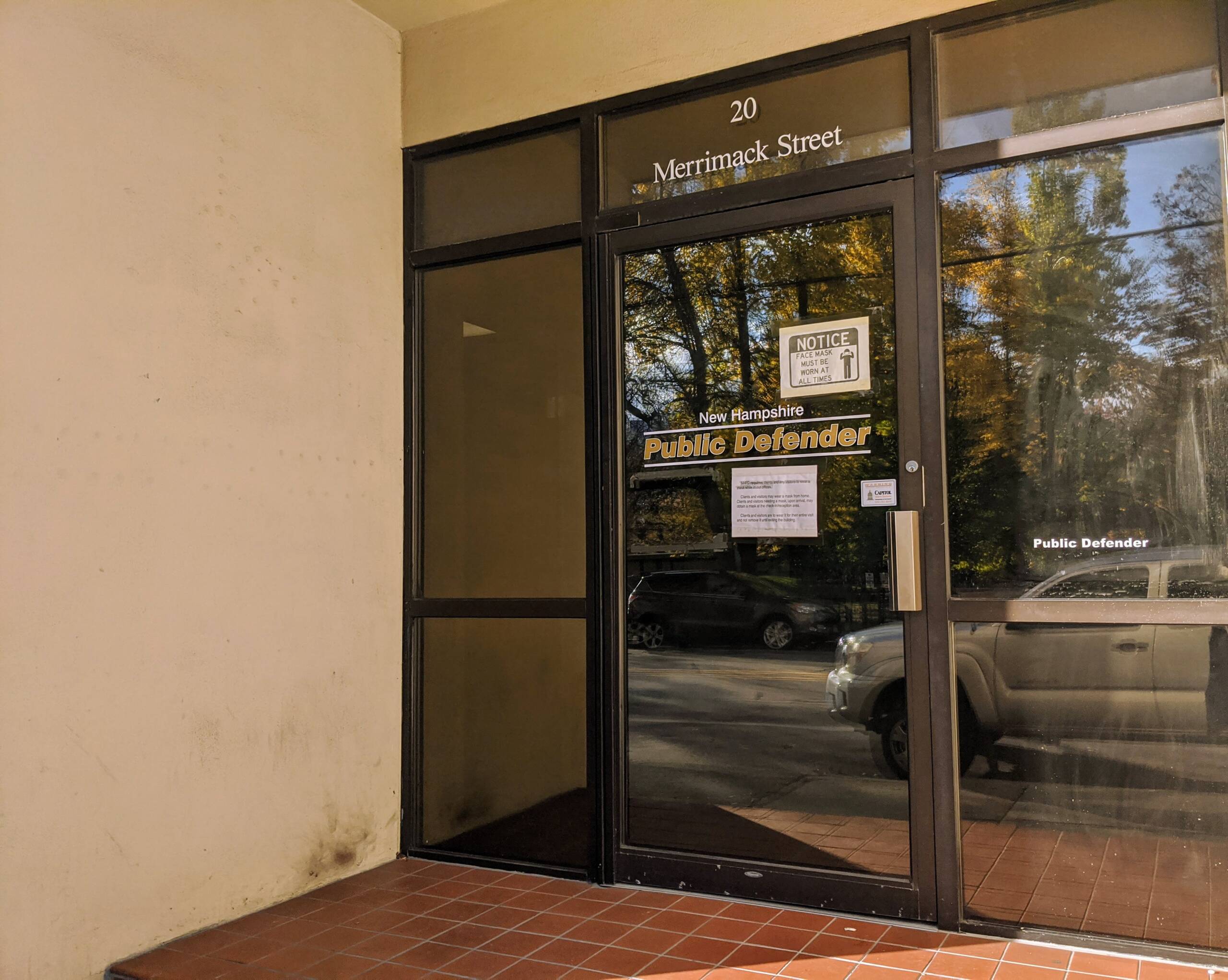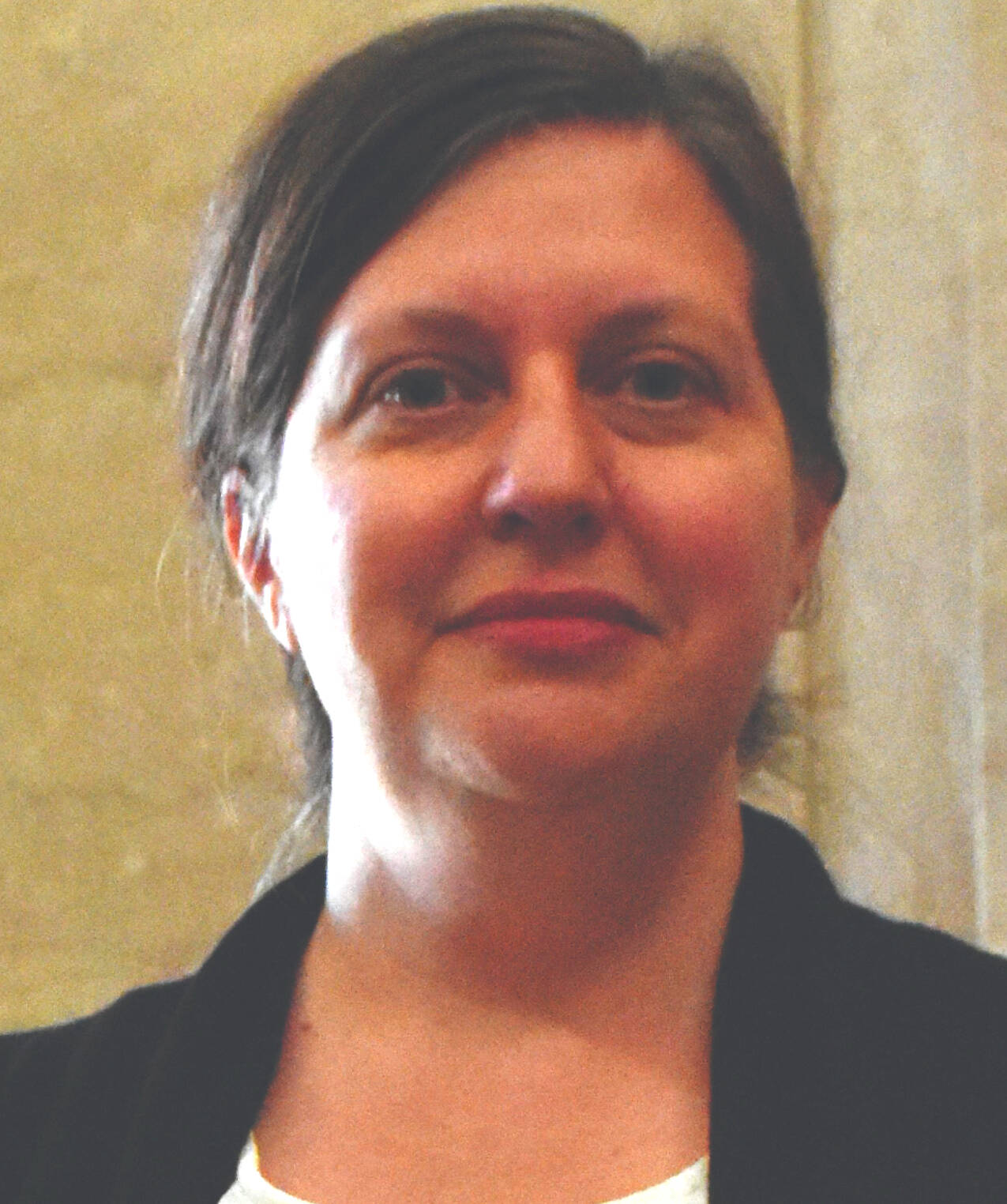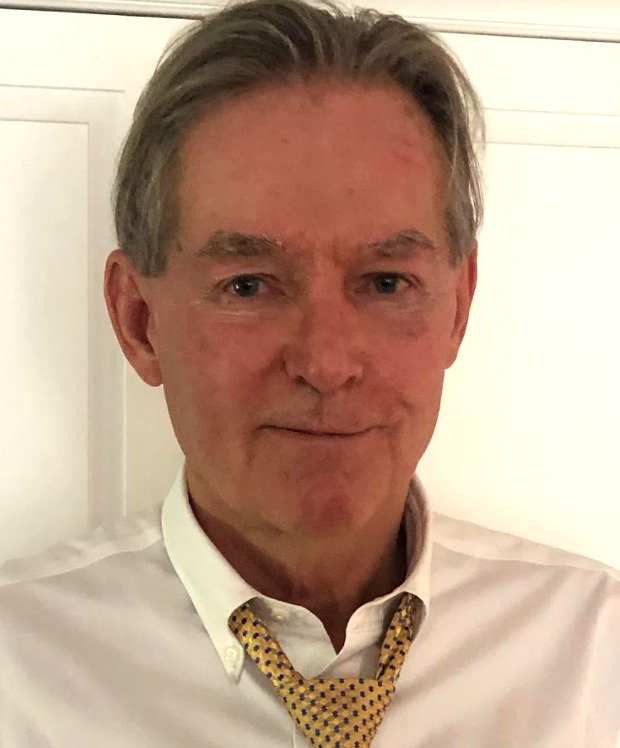
Story Produced by the NH Bar News, a Member of

The so-called “Great Resignation” that continues to affect businesses and organizations across the country has hit New Hampshire Public Defender — essentially the state’s largest law firm—where 32 attorneys have departed over the past 15 months.
New Hampshire Public Defender contracts with the state of New Hampshire to provide representation to indigent clients in criminal, juvenile, and involuntary commitment proceedings throughout the state.

Related Story: Many NH attorneys leaving Public Defender program, heavy caseloads cited
“We’re losing an attorney every two weeks,” said NHPD Executive Director Randy Hawkes. “We try to find competent lateral hires but it’s difficult. The job market is favorable for anyone looking right now and the pay rates for private practice far and away outstrip public defender pay scales.”
Attorney salaries at NHPD start at $53,000 with a cap of $86,900 after 11 years. Lateral hires allow attorneys to come in from other firms at the same pay rate they were receiving.
By comparison, Hawkes said most salaries at New Hampshire county attorneys’ offices start in the 60s and attorneys at Committee for Public Counsel Services (the Massachusetts version of NHPD) will be starting at just over $63,000 in December.

“There’s been an outflux, if you will, across our southern border,” he said.
Sarah Blodgett, director of the New Hampshire Judicial Council, which provides funding for the Public Defender, the Indigent Defense Fund and the Contract Attorney Program, said the council recently received $900,000 in federal funding for the next two years that can be used for lateral hires.
“Randy has been aggressively recruiting lawyers from across the country to come to Public Defender’s office and has had some success,” she said. “And now we have this pot of money, but as Randy said, we’re competing with better salaries and frankly easier jobs. This is a hard job.”
Supreme Court Task Force
In September, New Hampshire Supreme Court Chief Justice Gordon MacDonald requested that a task force be formed and chaired by Justice Patrick Donovan to address NHPD’s attrition problem, which has led to approximately 2,000 criminal cases in the Circuit Court without appointed counsel.
The task force, made up of attorneys and judges from around the state, released a report with recommendations on Oct. 27.
The report states that NHPD and county attorneys across the state are confronting “dangerously high caseloads” and recommends increased recruitment efforts, early case resolution, a scheduling pause, public awareness, training and mentoring, rule changes that would allow pro hac vice (allowing attorneys from outside jurisdictions to represent indigent clients), and additional funding.
“This problem is significant. Ultimately, more resources are needed by the public defender’s office and the county attorneys’ offices across the state,” Justice Donovan said. “The private bar needs to step in as well.”
In August, Superior Court Judge John C. Kissinger e-mailed more than 20 attorneys asking for their help in what he referred to as “a crisis in securing representation for indigent criminal defendants in Merrimack County.”
According to the task force report, Judge Kissinger has successfully recruited private practitioners to accept cases in Merrimack County, and one task force recommendation includes investigating how to secure malpractice coverage for retired practitioners willing to accept cases on a pro bono basis.
High caseloads, low pay taking a toll
NHPD’s contract establishes case limits of 70 open cases per attorney and allows the program to limit the intake of new cases when those levels have been reached.
Hawkes said NHPD caseloads have exceeded contractual limits statewide for more than two years.
In August, before the new lawyers started, there were only 123 attorneys on staff who averaged 91 open cases each. This is 30 percent above the maximum set by NHPD’s state contract.
Today a quarter of all public defenders in the state have more than a hundred open cases.
“The new lawyers are all very intelligent, capable, committed lawyers who will become excellent public defenders. But we cannot give them 80 or 90 cases on day one. There is a learning curve, and caseloads must be developed over time,” Hawkes said.
Another factor that keeps attorney caseloads high is attrition. When experienced attorneys leave an office, Hawkes explained, that office must absorb the cases the departing attorney leaves behind.
“As caseloads have risen, public defenders have gone above and beyond their obligations because they don’t want defendants to go unrepresented. But burgeoning caseloads have taken a toll on our staff,” he said. “Public Defender has seen unprecedented attrition over the past year and a half.”
Prior to the pandemic, Hawkes said about 10 to 12 attorneys left NHPD.

“Unfortunately, the situation today is a challenge for us at a time when we need every able body in the indigent defense system we can maintain,” he said. “It’s particularly troubling when we lose experienced attorneys. The criminal justice system, not only public defenders but prosecutors—it behooves the entire system to retain experienced people because they know how to move cases and they work well together.”
Hawkes explained that the departure of experienced NHPD attorneys presents the “doubly painful” issue of remaining caseloads.
“When our experienced counsel leave, they often have over a hundred cases that have to be absorbed by the remaining attorneys in that office,” he said. “And this exacerbates the caseload crisis.”
The ultimate measure of what constitutes competent and diligent representation, Hawkes continued, is “whether an attorney has sufficient time to meet with all clients, review all discovery (including audio and video evidence), conduct all necessary investigation, consult with experts when necessary, file appropriate motions and conduct pretrial litigation, attend all pretrial conferences and other hearings, explore diversion or treatment options, negotiate with prosecutors, and prepare adequately for trial.”
Current workloads, he stressed, “threaten NHPD attorneys’ ability to do those things, and the Rules of Professional Conduct provide no exception for lawyers who represent indigent persons charged with crimes.”
Contract and Assigned Cases
Robin Melone, a criminal defense attorney and president of the New Hampshire Association of Criminal Defense Lawyers, as well as a task force member, described the NHPD, which represents approximately 85 percent of cases coming through the system, as a crucial first line of defense.
When the NHPD cannot take cases because of conflicts of interest, she continued, cases get pushed to the Judicial Council for assignment.
The two mechanisms for assigning cases through the Judicial Council are contract and assigned cases.
Contract cases allow an attorney to take a certain number of units of wage each fiscal year in exchange for a flat fee per case. If, at the end of the year, the attorney doesn’t complete his or her contracted units, he or she is required to pay the money back.
The reimbursement rate for fiscal year 2021 was set by the Judicial Council at $300 per unit.
A Class A felony case, which includes serious crimes such as murder or sex crimes, equals 8.3 units, or $2,490. Misdemeanor cases are one unit, or $300.
The other form of contracting through the Judicial Council includes assigned cases.
These often include conflict cases involving situations where Public Defender is unable to accept co-defendants in a criminal case.
In a situation like this, attorneys who have agreed to be assigned cases work for $60 an hour for most cases and $100 for Felony 1 crimes.
Melone has taken both contract and assigned cases as a criminal defense attorney and said she understands the difficulties that can arise for attorneys in terms of time, money, and work.
She believes the discussion about money and public defenders has often been seen as awkward but that it remains a reality that needs to be addressed.
“If attorneys in bankruptcy or real estate or other practices talk about money, it’s not a problem. But because criminal defense is considered a passion and a drive for most people who do it, talking about money becomes a gauche and inappropriate thing to do,” she said. “But I think that people can both love the law and also be businesspeople, you know. I don’t do this for charity.”
Melone said she thinks public defenders need to be paid better for their time, adding that this is one of the keys to keeping a viable Public Defender’s office in the state, but that money is not the only issue.
“People don’t do this for the money, but the financial piece is becoming more of an issue. Salaries have not been adjusted and I think we need to do everything we can to nurture and show value to the experienced attorneys that we have,” she said. “If we continue to lose them, I have serious concerns about the program.”
Private criminal defense
Richard Guerriero, president of the New Hampshire Bar Association, is currently a private criminal defense attorney but spent 20 years at the Public Defender as its director of training.

While he’s encouraged, the courts and the bar are working to solve the problems with the public defender shortage, ultimately, he believes the solution involves more funding.
“The private criminal defense bar must do all that it can to help, but volunteerism is only going to diminish the crisis, not solve it,” he said. “You have to remember that contract and assigned counsel lose money at the current rates, so although everyone is stepping up to do more, it is a big ask, especially on the heels of the pandemic.”
Guerriero said his firm has accepted as many contract and assigned counsel cases as they are able to, but they are at their limit and he worries that it will be very difficult for untrained volunteer attorneys to provide competent representation.
“Criminal defense is an area of law that requires special training and knowledge, just like family law, tax law, or other areas,” he said. “The good news is that our court and our bar recognize the importance of the right to counsel. I am confident that the problem will be solved and that the bar will do everything in its power to work with the courts towards that end.”
Maintaining balance: A prosecutor’s perspective
Strafford County Attorney Thomas Velardi said that Chief Justice MacDonald asked him to join the criminal defense task force to make it a multilateral collaborative effort.
One of the themes he continues to emphasize as part of the task force, and in his day-to-day work, is that the criminal justice system is “a gentle balance between prosecution bar, defense bar, and bench.”
“Any time that suddenly becomes unbalanced with any one of those three legs of the stool, so to speak, you’re going to have problems for the other two legs. It’s simply unavoidable,” he said. “I was very gratified that the chief justice asked me to join. My fellow county attorneys supported my joining the task force as president of our association.”
Velardi said he found the meetings, chaired by Justice Donovan, to be productive. He echoed Hawkes’s concern regarding the lack of experience issue that comes with attrition.
“When you have a significant amount of attrition on either side of the bar, in order to replace those people who are likely to have more experience than the people replacing them, you have a steep curve to educate your opponent,” he said.
Velardi described the defense bar as the inverse of the prosecution bar and said, “One can’t thrive and survive without the other being healthy.”
“The county attorneys are concerned about this because even though we’re widely known to prosecute offenders, the offenders are part of our constituents. We need to make sure we’re minding the constitutional rights of the accused, as well. That’s why prosecutors are part of this dialogue,” he said.
Asked if he was optimistic the gap in counsel for indigent criminal defense will be alleviated in the coming year, Justice Donovan said he has hope that it will be but hesitated to say the problem will be solved in that time frame.
“I am, by nature, optimistic,” he said. “So, will it be alleviated? I hope so. Will it be fixed? Not in 12 months’ time.”
 These articles are being shared by partners in The Granite State News Collaborative. For more information visit collaborativenh.org.
These articles are being shared by partners in The Granite State News Collaborative. For more information visit collaborativenh.org.







